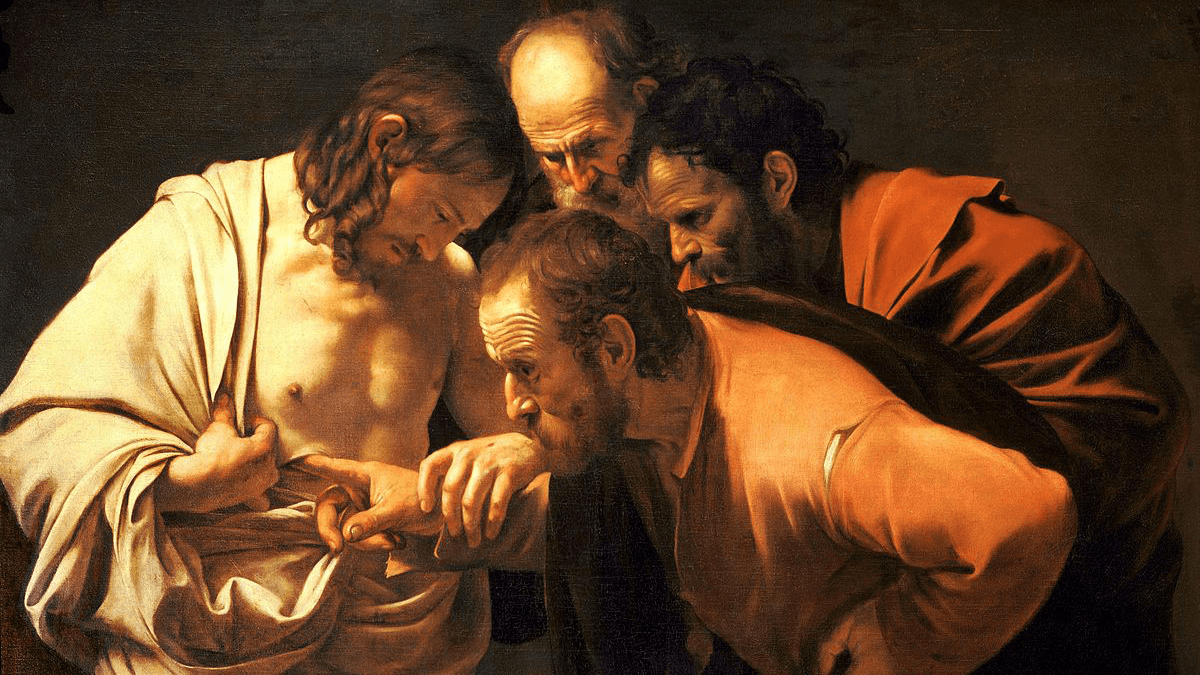On the Back Porch
Reading, pondering and studying God’s Word is sometimes best done “on the back porch.” Each week we will try to offer something for you and your “back porch time.”

2nd Sunday of Easter
(Divine Mercy)

The Upper Room
The gospel text for this Sunday is taken from the Gospel of John (20:19-31). It is a scene in the Upper Room and occurs “On the evening of that first day of the week…” – in other words, it is the evening on the day Jesus was resurrected from the tomb. In John’s gospel we know that Mary Magdalene has already discovered the empty tomb and informed Peter and the disciple whom Jesus loved (assumed to be John) of the findings which they confirm for themselves. Yet “they did not yet understand the scripture that he had to rise from the dead.” (John 20:9)
It is not hard to imagine the confusion, the rumors, the fears and doubts, and all that would try to fill the void of not knowing what to make of the empty tomb. It is at this point in time that the gospel narrative resumes.
What follows can be understood as three movements within the reading:
- The appearance of the Risen Lord and his greeting of peace,
- The giving of the Spirit and the mandate for the forgiveness of sins, and
- The familiar “doubting Thomas” narrative
There is a lot going on in these verses. If you would like to read a detailed commentary, you can find that here. The commentary goes into far more detail about the meaning of “peace”, what seems to be a “mini” Pentecost in the giving of the Holy Spirit, the commissioning (As the Father has sent me, so I send you.)
the institution and mandate of the Sacrament of Reconciliation, and the story of Thomas. Take the time and dive into the details!
A word about Thomas. Interestingly, the word “doubt” does not appear in the text, neither in English nor in Greek. The New American Bible (the one we use to proclaim the Sunday readings) says “do not be unbelieving, but believe.” An equally valid translation is: “do not be untrusting, but trust.” I think that when we use the word believe we tend to think of the messenger. “Trust” is a word we associate with relationships with people. Do we trust this person or not? Thomas received witness and testimony from the other disciples – did he not trust them? That is a question that Thomas needs to answer even before he can “believe” their testimony.
The disciples are being sent just as Jesus was sent. The messenger needs to be trustworthy before the message can be received.
Acts of the Apotles
After the events of Easter Sunday morning and that same evening when Jesus appeared to the disciples in the Upper Room, the nacsent church was being born. There is still Pentecost to come that we will celebrate in some 40 days or so, but the first reading for this Sunday begins to describe the early church as a commuity of believers. The first reading is from the Acts of the Apostles – as are almost all of the first readings (daily Mass and Sunday). Take a moment and watch this overview video of the Acts of the Apostles.
Breathing Divine Mercy
A homily from Bishop Robert Barron in which he unpacks the meaning of Jesus breathing on the disciples. He cnnected that action and its source to the story of Creation, the moment the holy breath of God gave life into the soil that became Adam, and its connection to Psalm 104…. and there is a lot more!